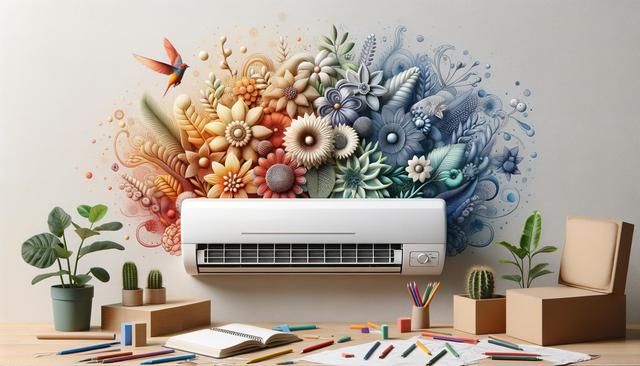Understanding Different Types of Air Conditioners
Before making a purchase, it’s crucial to understand the various types of air conditioning units available. Each type is designed for different spaces and cooling needs, and your choice should align with your home’s layout and your comfort requirements. The most common types include split-system air conditioners, ductless air conditioners for sale, and window units. Split-system air conditioners are widely used in households due to their efficiency and ability to cool multiple rooms. Ductless systems, as the name suggests, do not require ductwork and are ideal for older homes or home additions where ducts are impractical. These are also known as mini-split systems and offer a flexible and energy-efficient solution.
When comparing options, consider the following factors:
- Cooling capacity (measured in BTUs)
- Energy Efficiency Ratio (EER) and Seasonal Energy Efficiency Ratio (SEER)
- Installation requirements and costs
- Noise levels during operation
By matching the type of air conditioning unit to the specific needs of your space, you can ensure better performance, greater comfort, and lower energy consumption.
Energy Efficiency and Environmental Impact
Energy efficiency should be a top priority when selecting an air cooling system for home use. Not only does it reduce your utility bills, but it also minimizes your environmental footprint. Modern air conditioners come with various energy-saving features and certifications, such as ENERGY STAR ratings, which indicate compliance with energy efficiency standards.
Look for systems that offer inverter technology, which adjusts the compressor speed based on cooling demand. This can lead to noticeable energy savings over time. Additionally, selecting units with eco-friendly refrigerants such as R-32 or R-410A can reduce the environmental impact of your air conditioning system.
Here are some tips to improve energy efficiency:
- Choose the right size unit for your space
- Maintain and clean filters regularly
- Use programmable thermostats to optimize usage
- Seal windows and doors to prevent cool air from escaping
Investing in a highly rated, energy-efficient air conditioning unit can lead to significant long-term savings and contribute to a more sustainable household.
Features That Enhance Comfort and Convenience
Modern air conditioners come with a variety of features designed to enhance user comfort and convenience. While cooling performance is essential, added functionalities can contribute to a more pleasant and efficient experience. Features like remote control operation, smart connectivity, and programmable settings are becoming standard in many units.
Ductless air conditioners for sale often come with zoning capabilities, allowing you to control the temperature in individual rooms independently. This can be especially useful in households with varying cooling preferences. Some split-system air conditioners also include air purification features, such as HEPA filters or ionizers, which help improve indoor air quality.
When evaluating features, consider the following:
- Wi-Fi or app-based control for remote access
- Adjustable fan speeds and modes (cool, dry, fan-only)
- Sleep mode for quieter night operation
- Dehumidification settings for humid climates
While these features may not be essential for everyone, they can greatly enhance the day-to-day usability and overall satisfaction with your air cooling system for home use.
Installation and Maintenance Considerations
Proper installation and regular maintenance are key factors in ensuring the long-term performance and efficiency of any air conditioning unit. Whether you’re dealing with split-system air conditioners or ductless models, professional installation is often recommended to avoid common issues like refrigerant leaks or incorrect sizing.
Searching for “ac service near me” can help you locate certified technicians who specialize in installation and maintenance. These professionals can also offer routine servicing, which includes cleaning filters, checking refrigerant levels, and inspecting the compressor and electrical components. Regular maintenance not only extends the lifespan of your unit but also ensures optimal performance and energy efficiency.
Important installation and maintenance tips include:
- Ensure proper placement to allow for adequate airflow
- Schedule annual maintenance checks before peak cooling seasons
- Clean or replace filters monthly during heavy use
- Keep the outdoor unit free from debris and obstructions
By taking these steps, you can protect your investment and enjoy consistent comfort without unexpected breakdowns or costly repairs.
Budgeting and Making an Informed Purchase
Budget is often a deciding factor when choosing an air conditioning system. While it’s tempting to go for the lowest upfront cost, it’s important to consider long-term operating expenses like energy usage and maintenance. A slightly higher initial investment in a more efficient or feature-rich model can pay off over time through reduced energy bills and fewer service issues.
When comparing air conditioners, take into account the total cost of ownership, which includes:
- Purchase price
- Installation fees
- Expected energy consumption
- Maintenance and repair costs
Additionally, explore available rebates or incentives for energy-efficient appliances in your area. Some utility companies and government programs offer financial assistance for purchasing high-efficiency air cooling systems for home use.
Shopping during off-peak seasons can also yield better deals, and working with a reputable dealer or installer can help you find ductless air conditioners for sale that offer both value and reliability. Always read product reviews, request quotes from multiple providers, and ensure warranty coverage before finalizing your decision.
Conclusion: Choosing the Right AC for Your Needs
Selecting an air conditioner involves more than just picking a brand or model; it’s about finding the right fit for your home, lifestyle, and budget. By understanding the differences between split-system air conditioners, ductless options, and other types, you can make a choice that offers both comfort and efficiency. Consider energy ratings, installation requirements, and added features to enhance your experience, and don’t hesitate to consult professionals for installation and maintenance. Whether you’re upgrading an old unit or installing a new system, a well-informed decision will provide lasting comfort and peace of mind.

Leave a Reply